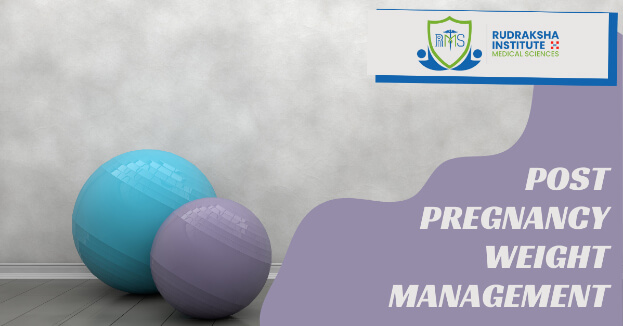
Stress, despair, and in some cases thyroid issues are challenges faced by new mothers. Cortisol is released into the body as a result of the stress experienced by new mothers who are now responsible for their kid. Cortisol promotes fat storage in the lower abdomen region and stimulates appetite. After giving birth, many moms experience postpartum depression, which makes them more likely to “consume their feelings” and add more weight.
Sometimes after giving birth, women have thyroid issues. Plans for postpartum weight loss might also be made worse by an underactive thyroid.
Following are a few suggestions for post pregnancy weight loss that are natural.
Your body benefits from staying hydrated in a number of different ways. One benefit is that it speeds up your metabolism. Additionally, it reduces hunger by making you feel full. Simply keep an eye on the transparency of your urine rather than adhering to the recommended water consumption for your BMI right away. If your urine isn’t clear, you should drink more water; however, if it is clear, you may be confident that you are getting enough water.
You can lose weight after giving birth by adhering to a postpartum eating plan. Following a postpartum diet alone won’t usually be sufficient to help you lose the weight you want, though. You must incorporate an exercise regimen into your postpartum weight loss plan if you want to experience quick weight loss. Consider adding an aerobic or weight-training session to your routine to burn calories and build stronger muscles and bones. Exercise should be incorporated into a new mother’s daily schedule in an effort to prevent weight gain after giving birth as well as a host of other advantages. It can lighten their spirits, relieve their tension from having a new baby in the house, and enhance the quality of their sleep.
With a toddler clamoring for your attention nonstop, this may seem like a difficult proposition, but not getting enough sleep can really interfere with your postpartum weight loss goals. When you are sleep deprived, you are more likely to engage in unhealthy behaviours like binge eating and drinking, which have no bearing on your ability to lose weight. If you don’t get enough sleep at night and are tired all day, your body will generate the hormone cortisol, which will make you feel more hungry.
Although famous post-pregnancy weight loss stories may make you assume that you may regain your pre-pregnancy physique in a few months, these tales are frequently not entirely accurate. Even if they are, keep in mind that they have a whole team planning out their postpartum weight loss journey. Research has shown that the typical period to lose baby weight is four to six months.
Mothers who are nursing may experience unexpected hunger pangs and increases in appetite. These hunger spikes could result in weight gain if not well managed. Instead, if you keep a supply of fruits, sprouts, veggies, nuts, and yogurt on hand to eat when you become hungry, you might be able to reduce the time it takes for you to lose the baby weight on average.
Make sure you are consuming the proper foods in accordance
with your objective once you have decided to begin your post-pregnancy weight
loss diet plan. You can benefit from the food items listed below:
If you want to be successful with your postpartum weight loss, there are some foods that you must stay away from. As follows:
Join a post pregnancy support group Group-based weight loss might keep you motivated on your post pregnancy weight loss journey if you desire extra support and company.
RIMS Groups ©2025 | All Rights Reserved